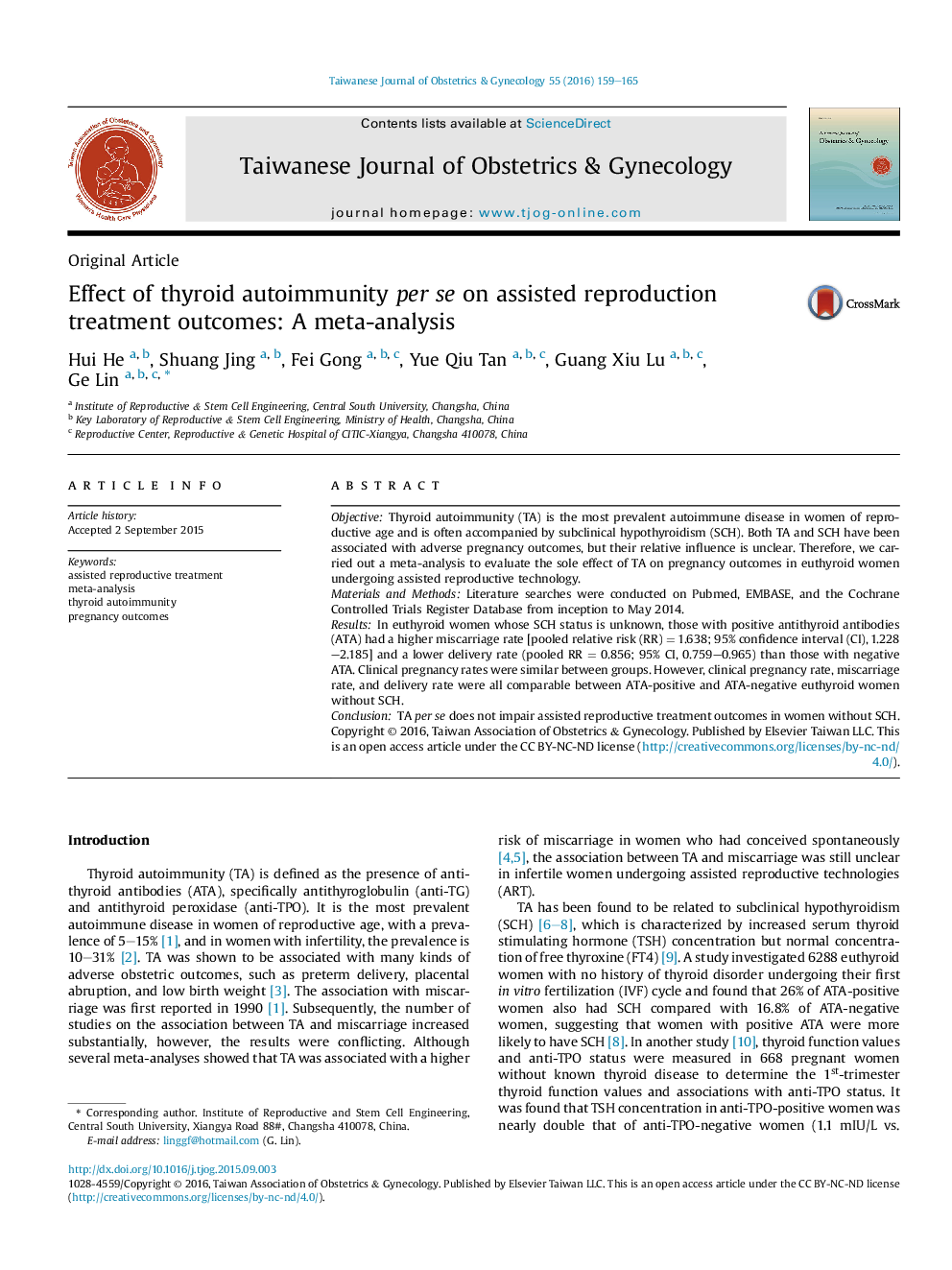| Article ID | Journal | Published Year | Pages | File Type |
|---|---|---|---|---|
| 3974969 | Taiwanese Journal of Obstetrics and Gynecology | 2016 | 7 Pages |
ObjectiveThyroid autoimmunity (TA) is the most prevalent autoimmune disease in women of reproductive age and is often accompanied by subclinical hypothyroidism (SCH). Both TA and SCH have been associated with adverse pregnancy outcomes, but their relative influence is unclear. Therefore, we carried out a meta-analysis to evaluate the sole effect of TA on pregnancy outcomes in euthyroid women undergoing assisted reproductive technology.Materials and MethodsLiterature searches were conducted on Pubmed, EMBASE, and the Cochrane Controlled Trials Register Database from inception to May 2014.ResultsIn euthyroid women whose SCH status is unknown, those with positive antithyroid antibodies (ATA) had a higher miscarriage rate [pooled relative risk (RR) = 1.638; 95% confidence interval (CI), 1.228–2.185] and a lower delivery rate (pooled RR = 0.856; 95% CI, 0.759–0.965) than those with negative ATA. Clinical pregnancy rates were similar between groups. However, clinical pregnancy rate, miscarriage rate, and delivery rate were all comparable between ATA-positive and ATA-negative euthyroid women without SCH.ConclusionTA per se does not impair assisted reproductive treatment outcomes in women without SCH.
